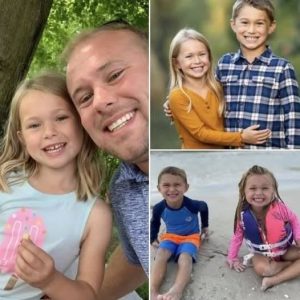For nearly five decades, Eleanor devoted herself wholeheartedly to the church that was her second home. Quiet, humble, and unassuming, she dedicated her life to serving others—without ever expecting recognition or reward. Yet, when life’s hardships struck and she needed the support of the very institution she had helped build, Eleanor found herself abandoned. In the silence of her later years, her unspoken sorrow and dignified resilience resonated more powerfully than any sermon ever could.
In the final chapter of her life, as a radiant afternoon sun warmed the day of her funeral, Eleanor’s story took on new meaning. It was a day of bittersweet clarity—a day when the truth of a lifetime of service was met with a final act of retribution and honest legacy.
Chapter 1: A Life of Quiet Dedication
Early Years of Service
Eleanor was not one to seek the spotlight. From the very beginning, she embodied the spirit of selfless service. A pillar of her Southern Baptist congregation, she was known for arriving early and staying late, for filling in wherever needed, and for doing so with a grace and dedication that earned her the quiet admiration of those around her. Whether it was covering for a sick nursery worker, preparing extra casseroles for fellowship dinners, or driving the church van on retreats and choir tours, Eleanor’s commitment was unwavering.
Her contributions were not measured by grand gestures or public accolades, but by the small acts of kindness that lit up the lives of everyone she touched. In the community, she was simply known as “Gran Eleanor”—a woman whose presence was as constant as the rising sun, whose humble smile and warm demeanor were a silent promise of care and love.
The Invisible Foundation
For many in the congregation, Eleanor’s service was a given. She was the unseen force that made the church function smoothly—the one who ensured that every event, every gathering, every small need was met before it could even be voiced. Her work was not done for applause; it was done out of love and a deep-seated belief in the mission of the church.
Yet, in a place where the loudest voices often dominate, Eleanor’s quiet contributions went unnoticed. Her efforts were so thoroughly integrated into the fabric of the church that no one ever paused to ask, “What do you need, Eleanor?” She had become the embodiment of silent sacrifice, always there to offer a hand or a kind word, but rarely receiving the same in return.
Chapter 2: The Years of Abandonment
The Accident and the Aftermath
At the age of 73, fate dealt Eleanor a cruel blow. A severe car accident left her physically weakened, her once vigorous legs rendered nearly useless, and her body in constant pain. The vibrant woman who had once tended her garden before dawn now found herself struggling to climb the steps to her front porch with the aid of a cane. Despite her physical decline, Eleanor’s spirit remained resolute, anchored by her unwavering faith.
In the months that followed the accident, Eleanor reached out to her church—a community she had served so faithfully for decades. She wrote letters, made phone calls, and even requested visits for companionship, prayer, and the simple act of sharing a moment together. But as the days turned into weeks, it became painfully clear that the church she had helped build had forgotten her. The absence of a single church leader or fellow member at her side was not a mistake, but a deliberate choice. They had not been invited. They had chosen not to come.
The Silence of a Once Vibrant Congregation
It was a stark betrayal for Eleanor, who had never once demanded recognition or special treatment. For years, she had given everything—her time, her energy, her love—without ever expecting anything in return. And yet, when she needed the support of the very institution that had long benefited from her quiet dedication, she was met with silence.
The congregation, which prided itself on “family values” and public displays of piety, had forgotten the true meaning of compassion. Pastors who once shook hands with senators and celebrated the image of unity now chose convenience over loyalty. The leaders who had once stood beside Eleanor in times of community celebration were nowhere to be found when her own needs arose.





